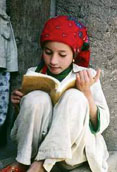 |
Unit 6 |
 |
||||||||||||||||
 |
||||||||||||||||
 |
||||||||||||||||
 |
||||||||||||||||
|
||||||||||||||||
 |
|
Dear Mr. Talbot, 8 September 2008 Our research has shown that an advanced stage of literacy is marked by more than the ability to read, write and speak the standard form of a given language. At an advanced stage of literacy, one has an awareness of the many regional dialect forms a given language can include. One also understands what the different pronunciation, grammatical, and idiomatic forms of each may indicate about the history and values of the speakers of different dialects. Since our office considers it of great importance for staff of an international organization to understand language as an expression of history and values of communities, we strongly recommend that courses in "Advanced Literacy" and "Intercultural Literacy" be made available to staff at all levels. Like many experts in the study of language and culture, Dr. Miriam Eisenstein-Ebsworth, Director of Ph.D. Programs in Multi-lingual, Multicultural Studies at New York University, views awareness of the variations in accent, idiom and structure in a given language as an indicator of an advanced, sophisticated stage of literacy in it. The more an individual develops knowledge of a given language, the more he or she undertands its role as an expression of culture. As stated earlier, as it is of the utmost importance for staff of an international organization to have an understanding of the different cultures that comprise it and to gain an advanced form of literacy, our office recommends that courses in "Advanced Literacy" and "Intercultural Literacy" be made available and that staff at all levels be encouraged to participate in them. For all of the above reasons, based on our latest research, our office thanks you for considering our request and hopes that favourable action can be taken on it. Should you need any further clarification or information, please do not hesitate to contact us. We look forward to your reply.
Yours truly, Marion Brown Coordinator of New Training Programmes Mr. John Talbot |